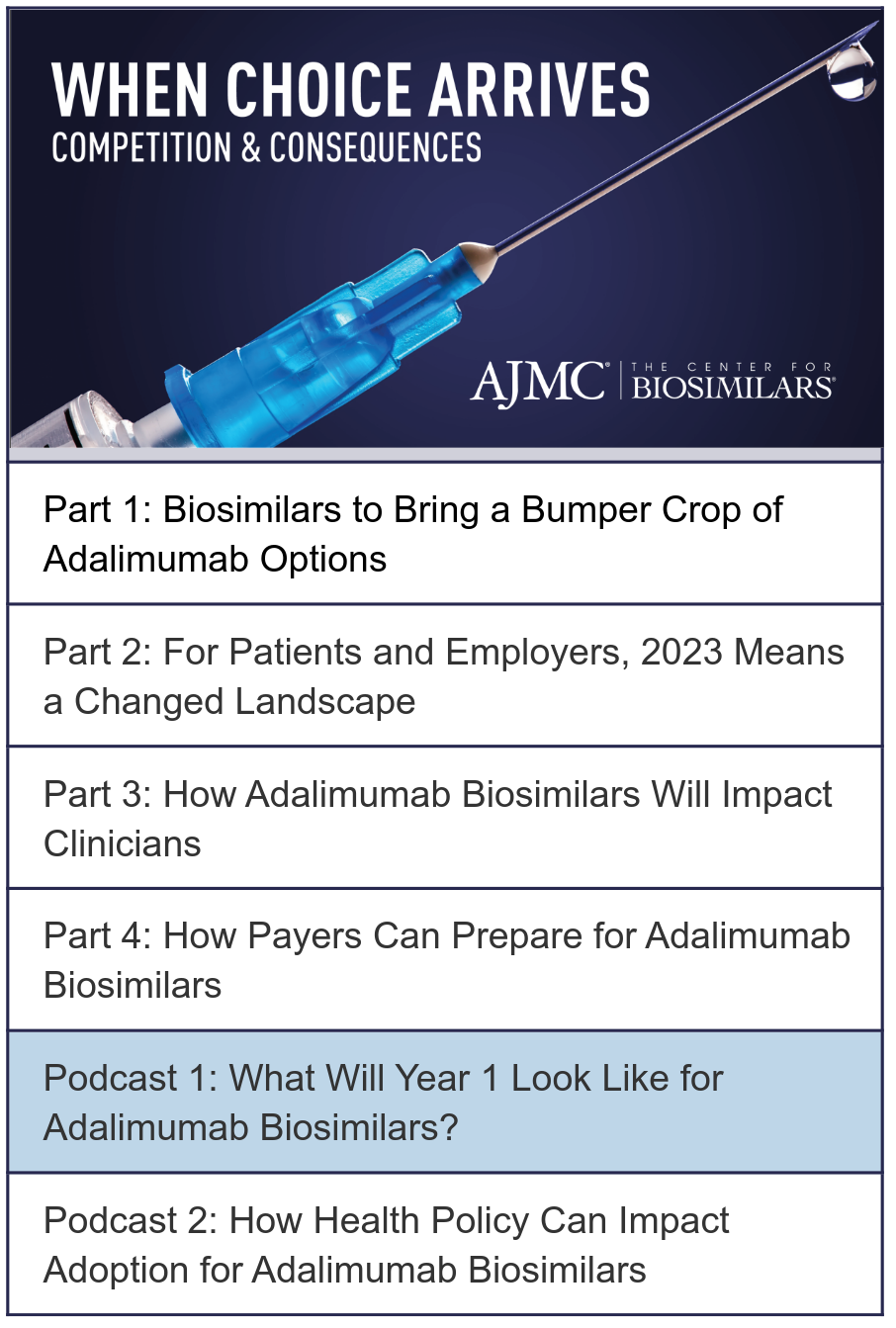- Bone Health
- Immunology
- Hematology
- Respiratory
- Dermatology
- Diabetes
- Gastroenterology
- Neurology
- Oncology
- Ophthalmology
- Rare Disease
- Rheumatology
What Will Year 1 Look Like for Adalimumab Biosimilars?
As part of a larger series preparing for the US market entrance of adalimumab biosimilars in 2023, Steven Lucio, PharmD, BCPS, senior principal of pharmacy solutions at Vizient, makes predictions for how the rollout of these biosimilars may play out and offers advice to stakeholders for how to maintain a robust market.

In 2023, between 7 and 10 adalimumab biosimilars referencing blockbuster drug Humira will finally enter the US market. This is most biosimilars the United States has ever had for the same reference product, and they’re all coming out in a short amount of time, meaning that everyone is wondering exactly how this is going to play out.
This summer, Vizient, a member-owned health care consulting company, published its Pharmacy Market Outlook report for 2022. The report provided insight into the current status of the US biosimilar market place and broke down some of the key aspects stakeholders should keep an eye on as the United States enters a new phase of biosimilar competition.
On this episode, The Center for Biosimilars® welcomes Steven Lucio, PharmD, BCPS, senior principal of pharmacy solutions at Vizient. Prior to his work with Vizient, Dr. Lucio practiced for almost 10 years within the Baylor Health Care System in various settings, including ICU clinical pharmacy and geriatric ambulatory care. Dr. Lucio has been working with Vizient on its Pharmacy Market Outlook report, which makes several predictions for how the biosimilar market is expected to develop in the near future, including how the first year of adalimumab biosimilars in the United States may play out.
This special episode is part of a larger series called “WHEN CHOICES ARRIVE: Competition & Consequences,” consisting of 4 articles and 2 podcasts. The series delves into everything that stakeholders need to know as everyone prepares for the 2023 introduction of adalimumab biosimilars.
Show notes
Part 1, part 2, and podcast 1 of the series are available now. Readers can expect podcast 2 on September 25 and part 4 on September 27.
To read part 1 of this series, “Biosimilars to Bring a Bumper Crop of Adalimumab Options,” click here.
To read part 2 of this series, "Part 2: For Patients and Employers, 2023 Means a Changed Landscape," click here.
To read more about Vizient’s Pharmacy Market Outlook report, click here.
To read more about Vizient’s provider survey, click here.
Newsletter
Where clinical, regulatory, and economic perspectives converge—sign up for Center for Biosimilars® emails to get expert insights on emerging treatment paradigms, biosimilar policy, and real-world outcomes that shape patient care.
